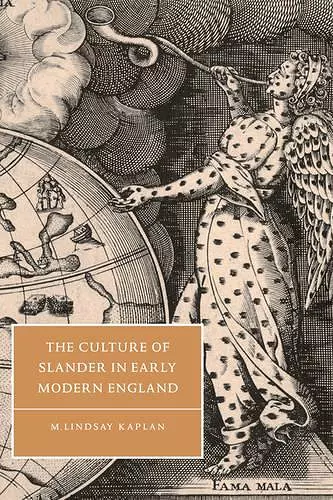The Culture of Slander in Early Modern England
Format:Hardback
Publisher:Cambridge University Press
Published:13th Oct '97
Currently unavailable, and unfortunately no date known when it will be back
This hardback is available in another edition too:
- Paperback£32.40was £36.00(9780521586375)

The literary and political significance of slander, including its use by Spenser, Jonson and Shakespeare.
Slander constitutes a central social, legal and literary concern of early modern England. M. Lindsay Kaplan reveals it to be an effective, if unstable, means of repudiating those perceived to be foes, and shows how it was deployed by rulers and poets including Spenser, Jonson and Shakespeare.Slander constitutes a central social, legal and literary concern of early modern England. A category of discourse which transgresses the law, it offers a more historically grounded and fluid account of power relations between poets and the state than that offered by the commonly accepted model of official censorship. An investigation of slander reveals it to be an effective, unstable and reversible means of repudiating one's opposition that could be deployed by rulers or poets. Spenser, Jonson and Shakespeare each use the paradigm of slander to challenge official criticism of poetry, while contemporary legal theory associates slander with poetry. However, even as rulers themselves make use of slander in the form of propaganda to demonize those they perceive to be their foes, ultimately they are unable to contain completely the threat posed by slanderous accusations against the state.
'… this thoughtful and thought-provoking book deserves a warm welcome.' Renaissance Journal
ISBN: 9780521584081
Dimensions: 236mm x 159mm x 17mm
Weight: 365g
164 pages